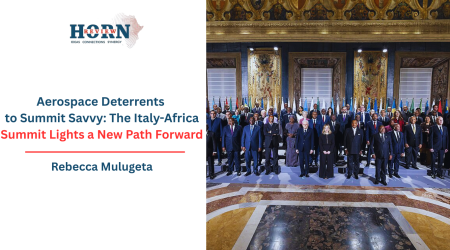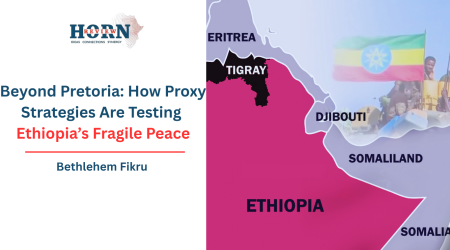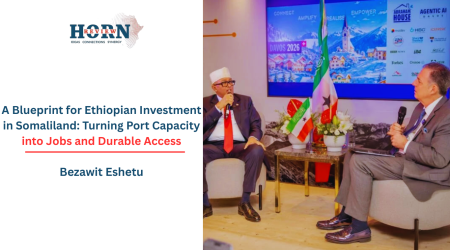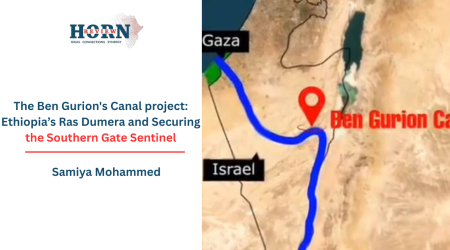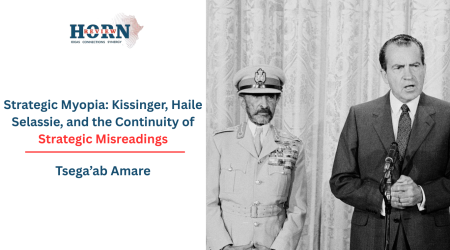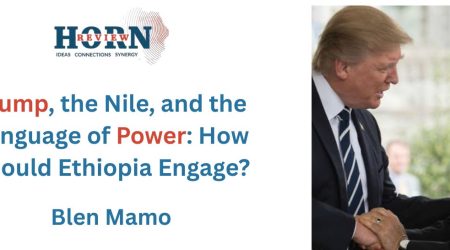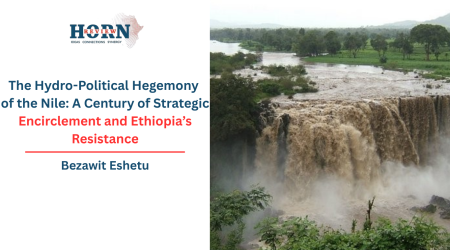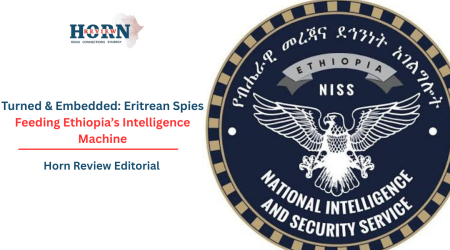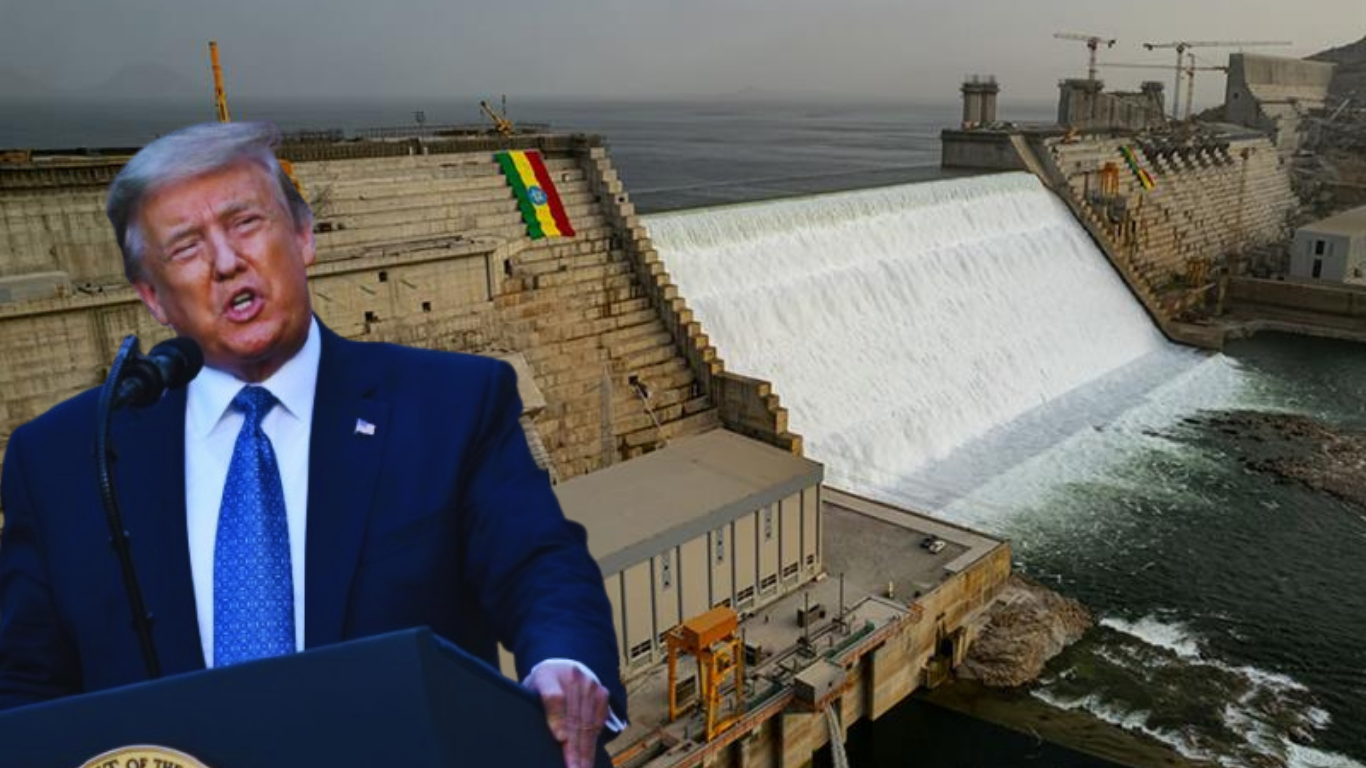
30
Jul
GERD, Sovereignty, and Diplomacy: What Trump’s 2025 Remarks Mean for Ethiopia’s Future
U.S. President Donald Trump made remarks about the Grand Ethiopian Renaissance Dam (GERD), reigniting international attention on the long-standing Nile River dispute. While Trump acknowledged Egypt’s concerns over its vital access to Nile waters, he avoided taking sides or proposing any specific action. Instead, his comments echoed a general international interest in resolving the issue peacefully and through mutual understanding.
Some observers viewed Trump’s words as leaning toward Egypt. However, a more balanced interpretation reveals a call for diplomatic solutions that respect the rights and sovereignty of all Nile Basin countries. In this context, Ethiopia’s successful, self-funded construction of the GERD stands as a powerful symbol of its national ambition and sovereign agency.
No conversation about GERD is complete without addressing the Nile’s contentious history. Colonial-era treaties have long governed the river’s usage, specifically the 1929 and 1959 agreements between Egypt, Sudan, and Britain that excluded Ethiopia and other upstream countries. Ethiopia has always rejected these outdated arrangements, viewing them as relics of a colonial past that denied upstream nations their fair share of the Nile.
The GERD project is Ethiopia’s effort to correct this historical imbalance. It represents a push toward self-reliance, energy security, and economic development. While Egypt portrays the dam as a threat to its water security, Ethiopia asserts that its purpose is not to harm but to help: by regulating water flow, generating electricity, and fostering regional development.
Ethiopian Prime Minister Abiy Ahmed has consistently emphasized GERD as a symbol of cooperation, not conflict. He has urged African nations to prioritize shared progress over zero-sum politics. Despite Egyptian claims, independent hydrological studies have consistently shown that the dam does not reduce the overall volume of Nile water. Rather, it allows water to pass through turbines before continuing downstream, helping to regulate seasonal flow without consumption or diversion.
Still, Egypt has launched aggressive diplomatic and media campaigns, casting GERD as an existential threat. During Trump’s presidency, Egypt amplified its concerns globally, focusing more on international pressure than engaging in regional cooperation.
Understanding the Real Impact of GERD
Since construction began in 2011, Ethiopia has maintained transparent communication with both Egypt and Sudan. It has participated in numerous negotiations facilitated by the African Union, the United States, and the European Union. Despite this, Egypt has repeatedly stalled talks, demanding a binding agreement that would give it long-term control over upstream water developments.
Ethiopia, contributing over 85% of the Nile’s water via the Blue Nile, was never part of the colonial-era treaties and insists on its right to equitable and reasonable use of its resources. Claims that GERD will severely reduce Egypt’s water supply are not supported by scientific evidence. In fact, the dam could enhance water management across the entire basin.
The contrast between the two nations’ objectives is striking. Ethiopia built GERD to lift over 65 million people out of energy poverty. Egypt’s projects, by comparison, often serve elite interests and remain largely shielded from regional accountability. The issue, ultimately, is not a water shortage, it is a lack of fair distribution and cooperation.
The recently completed GERD stands as a historic milestone for Ethiopia and Africa at large. The dam was finalized despite years of intense regional opposition, most notably from Egypt. Cairo ran a sustained campaign to stop or delay GERD, centered on fears that the dam would drastically reduce Nile water flow, threaten Egypt’s national security, and damage its own dam infrastructure and agriculture.
However, these concerns have repeatedly been shown to lack technical merit. Independent hydrological models and studies confirm that GERD’s design as a hydroelectric dam does not significantly cut downstream water flows. It uses water’s force to generate electricity before releasing it downstream regulating flow but not depleting volume. These scientific findings did not temper Egypt’s efforts. Egypt lobbied international platforms, including the UN Security Council and Arab League, portraying Ethiopia as a destabilizing force. Reports also emerged of support for rebel groups and regional actors aimed at undermining Ethiopia’s progress.
In response to the campaign, Ethiopia consistently chose diplomacy advocating dialogue and technical cooperation. Now, with the dam completed and inaugurated, the predicted catastrophes have not materialized. Not a single drop of water has been lost to Egypt or Sudan. Seasonal floods continue, and water flows remain within historical norms.
GERD stands as more than just infrastructure. It embodies African resilience, ambition, and the sovereign right of every nation to harness its natural resources responsibly. The lesson from this decade-long saga is clear: science-based dialogue, mutual respect, and accountability must guide transboundary water management.
Charting a Path Forward
Ethiopia continues to advocate for dialogue, regional partnership, and peaceful resolution. Its position is grounded in mutual respect and international water law. GERD is not a weapon it is a development tool, a path toward sustainability, energy access, and long-term transformation.
Ethiopia remains steadfast in its peaceful approach. It built the GERD without foreign aid or loans, relying entirely on domestic resources. This achievement is not only an infrastructure milestone but also a powerful symbol of African independence and determination. Ethiopia has chosen to invest in its own future while respecting global norms.
The Nile should unite, not divide. Its waters are a shared lifeline for millions across East Africa. A just resolution must be built on mutual respect, equitable use, and science-based diplomacy. GERD represents a hope, a path toward equitable regional development, peace, and African agency in global discourse.
“Ethiopia’s sovereign right to harness the Nile waters is essential for Africa’s shared development, regional cooperation, and lasting peace.”
Adapted from African Union Bureau Communiqué on GERD (2020)
By Bemnet Fikre,Researcher,Horn Review

